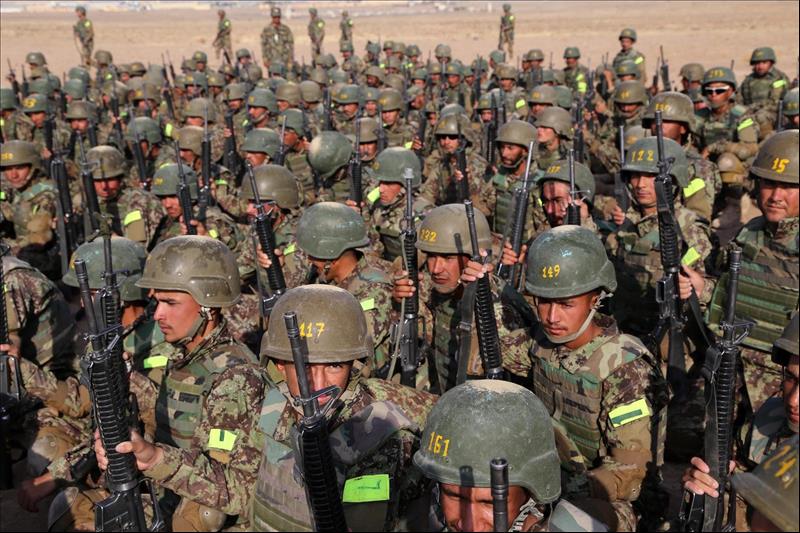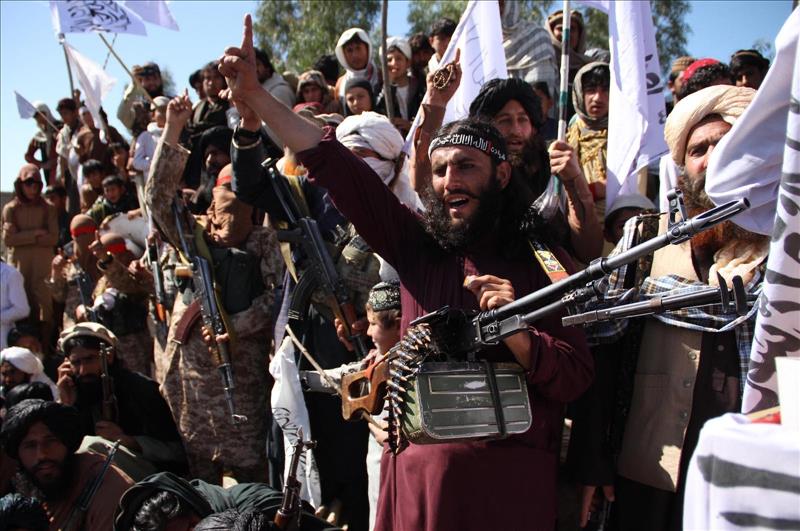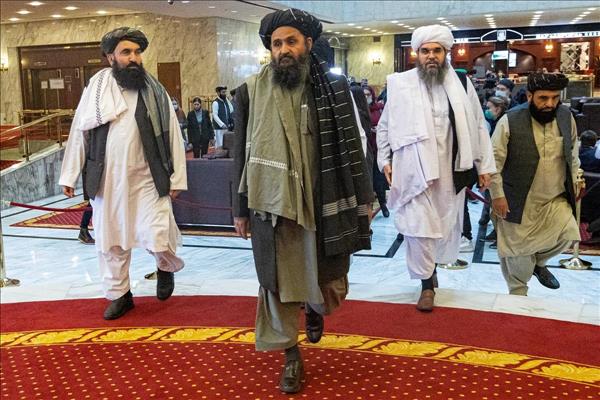(MENAFN- Asia Times) Afghanistan's end game is pointing increasingly towards a total Taliban victory as violence escalates while US troops begin their final withdrawal.
The signposts in that direction are marked in blood. On Saturday, a car bomb targeting schoolgirls in the capital Kabul killed 85 and wounded another 147 in an area home to ethnic Hazara Shiites, a minority group that has been targeted by radical Sunni groups allied with the Taliban.
On May 1, the day US and NATO forces began to withdraw formally from the country, the Taliban launched a lethal attack on a key army base in the southeastern province of Ghazni. Over 17 soldiers were killed and dozens captured in the surprise assault.
In Helmand province, where US forces just the day before handed authority over a base to Afghan national security forces, a Taliban attack on Lashkar Gah sparked heavy fighting that displaced hundreds of families.
The Afghan Defense Ministry has confirmed its security forces are currently responding to Taliban attacks in at least six provinces apart from Helmand.
The surge in violence is raising hard questions about the credibility of the multinational peace process, where a so-called ''extended troika'' comprised of the US, China, and Russia along with Pakistan, the Taliban and Afghan national government recently convened in Doha, Qatar, to announce a new ''road map'' to peace.
Although the ''troika'' has openly called upon all Afghan parties to ''include protections for the rights of all Afghans, including women, men, children, victims of war, and minorities'', it's not clear that is what the Taliban and its aligned radical Islamist groups have in mind.
Indeed, the Taliban's new push indicates it aims to move in quickly to areas as soon as US forces depart, presenting a fait accompli to the outgunned national forces left in the lurch.

Afghan army soldiers take part in a military training in Herat province, western Afghanistan, September 21, 2016. Photo: Nasim Seyamak / NurPhoto via AFP
That calculus is rooted in a Taliban belief that battlefield resistance forced the US to negotiate and withdraw, and there is little reason to ease the onslaught at a time when a total military and ideological victory is within reach. The final 2,500-3,500 US troops will leave Afghanistan by September 11, marking the end of a two-decade deployment.
For many in Afghanistan, though, the multinational peace process has conspicuously failed to address their concerns about the Taliban's unrelenting drive to establish an ''Islamic Emirate'', a Sharia law-based system that will inevitably roll back various liberalizing reforms implemented under US-propped secular rule.
While the Taliban has pledged to respect and allow women to be educated after the US troop withdrawal, the role of women in society remains highly restricted under the type of orthodox Sharia law the Taliban espouses. Many see the troika's failure to address these concerns as tantamount to accepting the Taliban's overlordship of the country.
The recent surge in violence has also revealed cracks among the multinational nations involved in the peace process. After Saturday's attack on the girl's school in Kabul, China's Foreign Ministry said it was 'shocked'' and ''deeply saddened'' by the assault and called on the US to withdraw its troops ''in a responsible manner.''
''It needs to be pointed out that the recent abrupt US announcement of complete withdrawal of forces from Afghanistan has led to a succession of explosive attacks throughout the country, worsening the security situation and threatening peace and stability as well as people's lives and safety,'' spokeswoman Hua Chunying said in a statement on Sunday.
China has long feared that greater instability in Afghanistan could create space for more Islamic fundamentalism that could spill over into China's predominantly Muslim Xinjiang region, where it stands accused of persecution of its Muslim minority Uighur population. Beijing has sought to entice the Taliban into its Belt and Road Initiative but it's not clear to most the insurgent group is currently focused on Afghanistan's economic future.
Indeed, while the US and other actors involved in the peace process have pushed for a ceasefire, the Taliban have skirted those demands by insisting on their ''right'' to continue ''jihad'' until their objectives are met, including driving US and NATO troops out of the country.

Afghan Taliban fighters and villagers attend a gathering as they celebrate the peace deal signed between US and Taliban in Laghman Province, Alingar district on March 2, 2020. Photo: Wali Sabawoon / NurPhoto via AFP
The Taliban operationalized that maximalist position literally within hours of the beginning of America's troop withdrawal last week. Apart from launching direct attacks, the Taliban have already started to establish their own check-posts on all major highways leading into and out of the Afghan capital.
Many of these posts have been established at locations previously guarded by Afghan national security forces. Stretched thin by the US withdrawal, Afghan soldiers fearful of Taliban attacks have already abandoned many posts across the country.
The Taliban's rising control of highways is allowing it to encircle the Afghan capital, which the Taliban asserts is being occupied by foreign puppets led by President Ashraf Ghani, with a view to crippling his government's ability to function.
The Taliban's highway chokepoints will not only make moving logistical supplies to Afghan forces more perilous but is also already forcing Afghan officials to travel to the capital by air as national roads are now widely seen as ''Taliban's country.''
Taliban forces are also making their presence apparent in and around various regional capitals, likely to not only test the security waters but also announce their arrival is coming sooner rather than later.
Analysts believe the Taliban is also testing to see if the US is still willing to use air power, as it did to defend Kandahar and Lashkargah in the autumn of 2020, if it starts attacking Afghan cities in the coming months.
There are economic risks to the Taliban's new hard push. The US and EU, which together provide hundreds of millions of dollars in assistance to the nation, could pull their aid and thrust the country into a sudden economic downturn, making it more difficult for the Taliban to consolidate their hard-line rule.

Taliban co-founder Mullah Abdul Ghani Baradar (center) and other members of the Taliban arrive to attend an international conference in Moscow on March 18, 2021. Photo: Alexander Zemlianichenko / AFP
But it's not clear yet that the Taliban is thinking about anything apart from a total military victory vis-à-vis the US, regardless of the economic and diplomatic costs.
To be sure, some believe that once the Taliban consolidates a modicum of control it will seek to co-opt non-Taliban Afghans to initiate an ''Afghan-led and Afghan-owned'' — rather than foreign-imposed — peace settlement.
But peace forged under the shadow of Taliban guns and prospect of Sharia law will not feel much different to many Afghans than the order enforced 20-years ago under the threat US B-52 bombers and force of US boots on the ground.
MENAFN10052021000159011032ID1102058277
Legal Disclaimer:
MENAFN provides the information “as is” without warranty of any kind. We do not accept any responsibility or liability for the accuracy, content, images, videos, licenses, completeness, legality, or reliability of the information contained in this article. If you have any complaints or copyright issues related to this article, kindly contact the provider above.